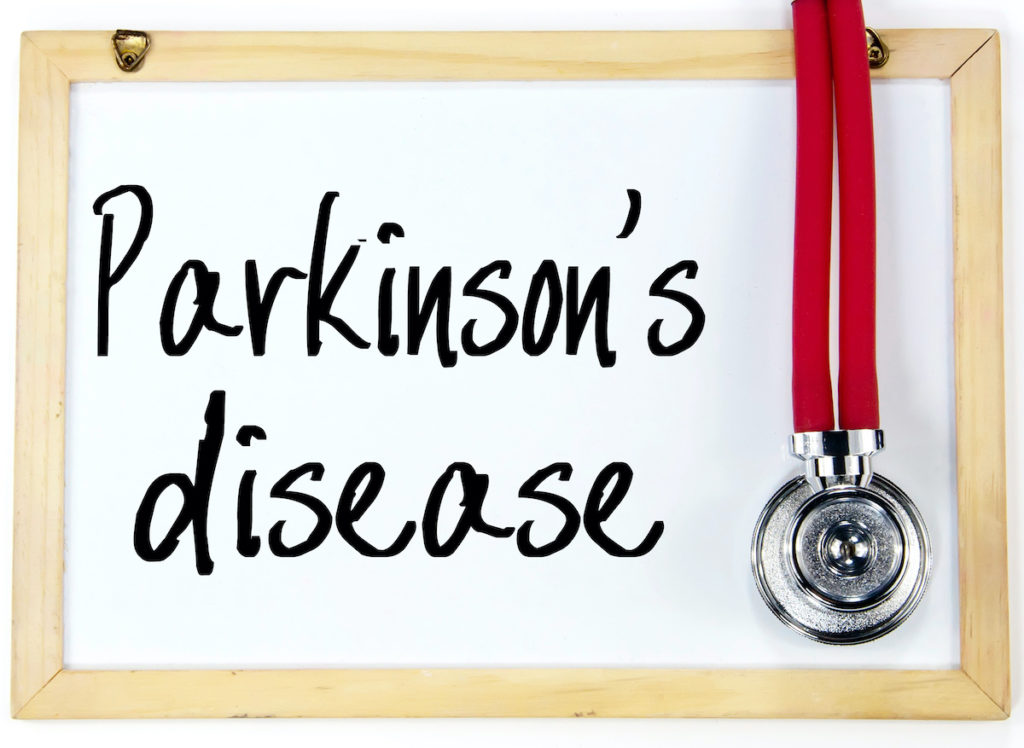The late stages of Parkinson’s disease are marked by a significant decline in physical and cognitive function. Patients may become severely limited in their mobility, requiring assistance with daily activities. Communication can also become impaired, making it difficult to express thoughts and needs. Additionally, the risk of complications, such as falls and pneumonia, increases significantly.
Category Archives: parkinson’s disease
A tremor in a resting hand is a classic sign, but it’s not the only one. Look for a tremor that persists, especially when relaxed. Another early indicator is bradykinesia, or slowness of movement. Simple tasks like getting dressed or buttoning a shirt may take significantly longer and require more effort. Rigidity, a feeling of tightness or restricted movement, can affect any part of the body, leading to a stooped posture or a shuffling gait. Balance problems and falls are also common, so be observant if your partner seems unsteady or trips more frequently. Changes in speech can be subtle but significant. Speech may become softer, slurred, or monotone.
Parkinson’s Disease (PD) is a neurological disorder that affects movement. PD results from the loss of nerve cells in a part of the brain called the Substantia Nigra. These cells produce a chemical called dopamine, which helps control movement. When these cells die, the brain fails to produce enough dopamine. As a result, this leads […]
Alzheimer's Medi-Cal, Asset Protection Attorney Walnut Creek, Elder Law Attorney Walnut Creek, Medi-Cal Attorney Walnut Creek CA, Medi-Cal Gifting Walnut Creek, Nursing Home Attorney Walnut Creek, parkinson's disease, Senior Law Attorney Walnut Creek, Uncategorized, Walnut Creek Elder Law
Medi-Cal Gifting Rules for a Single Person
Click the link below to find out about the Medi-Cal gifting rules for a single person. Medi-Cal presently has a 30 month look-back period for gifting. The period of ineligibility starts when the gift is made. When the Deficit Reduction Act (DRA) rules are adopted in California, there will be a five year look back […]
aid and attendance, Baby Boomer Estate Planning, Baby Boomer Estate Planning, Contra Costa Elder Law, Elder Law Attorney Contra Costa, Elder Law Attorney Walnut Creek, Estate Planning for Baby Boomers, falling, Medi-Cal Attorney Pleasant Hill CA, Medi-Cal Attorney Walnut Creek CA, Medi-Cal Planning & Qualification, parkinson's disease, Pay Nursing Home Care Walnut Creek, Pleasant Hill Elder Law Attorney, Pleasant Hill Senior Law Attorney, Senior Law Attorney Walnut Creek, senior law contra costa, senior law walnut creek, Special Needs Trust, Special Needs Trusts, Sustainable Estate Planning, VA Aid & Attendance Attorney Walnut Creek, VA Attorney Walnut creek, Walnut Creek Elder Law, Walnut Creek Medi-Cal Qualification
Mom Is Showing Some Dementia – Can we still create a long term care plan for her?
In my workshops, we talk about the Elder Care Journey. Along this journey, which I show on a chart, is an area called “Declining Senior With Memory or Mobility Issues.” I reference this step along the Elder Care Journey as a DANGER ZONE. We know that mobility issues and falling oftentimes is the beginning of […]
aid and attendance, Alzheimer's Care, Alzheimer's Disease, Alzheimer's Medi-Cal, Baby Boomer Estate Planning, Baby Boomer Estate Planning, Brentwood Elder Law Atorney, Brentwood Nursing Home Attorney, CA Attorney Asset Protection, Elder Law Attorney Contra Costa, elder law attorney Pleasant Hill, Elder Law Attorney Walnut Creek, Estate Planning for Baby Boomers, Medi-Cal Attorney Walnut Creek CA, Nursing Home Attorney Walnut Creek, parkinson's disease, Pleasant Hill Senior Law Attorney, Senior Law Attorney Walnut Creek, senior law walnut creek, VA Attorney Walnut creek, Walnut Creek Elder Law, Walnut Creek Medi-Cal Qualification
Little Known Law May Help Seniors Pay for Long Term Care
On August 17, 2006, the President signed into law The Pension Protection Act of 2006. This law, which came into effect in 2010, can be very helpful to Baby Boomers and older clients who are looking for ways to private pay for long term care without coming up with additional funds. Many of our clients […]
Alzheimer's Care, Alzheimer's Medi-Cal, Baby Boomer Estate Planning, Baby Boomer Estate Planning, Brentwood Elder Law Atorney, CA Attorney Asset Protection, Elder Law Attorney Contra Costa, elder law attorney Pleasant Hill, Elder Law Attorney Walnut Creek, Elder Law Estate Planning, Estate Planning for Baby Boomers, Medi-Cal attorney, Medi-Cal Attorney Pleasant Hill CA, Medi-Cal Attorney Walnut Creek CA, Nursing Home Attorney, nursing home costs, parkinson's disease, Pleasant Hill Elder Law Attorney, Pleasant Hill Senior Law Attorney, Probate Attorney Contra Costa County, Senior Law Attorney Walnut Creek, senior law contra costa, senior law walnut creek, Uncategorized, VA Attorney Walnut creek, Walnut Creek Elder Law, Walnut Creek Medi-Cal Qualification
One Unique Way You Can Use Your Own Funds To Help Pay For Your Long Term Care Is To Convert Your Life Insurance Policy Into a Life Care Funding Trust
As we have discussed in the past, there are 3 ways to pay for long term care. 1) You can use your own money; 2) You can use your long term care insurance if you have it; 3) You can utilize the VA Aid & Attendance program to help pay for in home care and […]
aid and attendance, Alzheimer's Care, Alzheimer's Disease, Alzheimer's Medi-Cal, Baby Boomer Estate Planning, Baby Boomer Estate Planning, CA Attorney Asset Protection, Contra Costa Nursing Home Attorney, Elder Law Attorney Contra Costa, Elder Law Attorney Walnut Creek, Estate Planning for Baby Boomers, Medi-Cal Qualification, Nursing Home Attorney, Nursing Home Attorney Walnut Creek, nursing homes, parkinson's disease, Probate & Trust Administration, Senior Law Attorney Walnut Creek, Special Needs Trust, VA Attorney Walnut creek, Walnut Creek Elder Law, Walnut Creek Medi-Cal Qualification
Special Needs Trust & Inheritance & Workshop 5-8-2014
Special Needs Trusts and Inheritance: Q: Our father just passed away and left $400,000 in his revocable living trust to myself and my brother. My brother is on SSI and will lose his benefit when he receives the inheritance. What should we do? A. There is a remedy for this problem when someone dies, and […]
Aid & Attendance Antioch, Alzheimer's Care, Alzheimer's Medi-Cal, Baby Boomer Estate Planning, Baby Boomer Estate Planning, Brentwood Elder Law Attorney, CA Attorney Asset Protection, Elder Law Attorney Contra Costa, elder law attorney Pleasant Hill, Elder Law Attorney Walnut Creek, Estate Planning for Baby Boomers, Estate Planning in California, falling, Hospice Care, Medi-Cal attorney, Medi-Cal Attorney Pleasant Hill CA, Medi-Cal Attorney Walnut Creek CA, Medi-Cal Planning & Qualification, Nursing Home Attorney, Nursing Home Attorney Walnut Creek, nursing home costs, parkinson's disease, Pleasant Hill Elder Law Attorney, Probate Attorney Contra Costa County, Qualification for VA Aid & Attendance, Senior Law Attorney Walnut Creek, senior law walnut creek, VA Attorney Walnut creek, Walnut Creek Elder Law, Walnut Creek Medi-Cal Qualification
Consider Naming a Professional Fiduciary In Your Estate Planning Documents
When we prepare our estate planning documents, such as the Revocable Living Trust and Financial Durable Powers of Attorney, we typically name our spouses and then our children as our fiduciaries if we cannot act for ourselves. It would seem that the most common reason that would cause a fiduciary to act is the loss of mental capacity of […]
aid and attendance, Alzheimer's Disease, Alzheimer's Medi-Cal, Baby Boomer Estate Planning, Baby Boomer Estate Planning, CA Attorney Asset Protection, Contra Costa Elder Law, Contra Costa Nursing Home Attorney, Elder Law Attorney Walnut Creek, Elder Law Estate Planning, Medi-Cal Attorney Pleasant Hill CA, Medi-Cal Attorney Walnut Creek CA, Medi-Cal Planning & Qualification, Nursing Home Attorney, Nursing Home Attorney Walnut Creek, parkinson's disease, Qualification for VA Aid & Attendance, Senior Law Attorney Walnut Creek, VA Attorney Walnut creek, Walnut Creek Elder Law, Walnut Creek Medi-Cal Qualification
No Look Back Period for VA Aid & Attendance
There will NOT be a look-back gifting penalty period for the VA Aid & Attendance Pension Benefit. On February 27, 2014, Senate Bill 1982, known as The Veterans Pension Protection Act, did not get the required votes to pass. One of the purposes of this bill, which also contained other provisions, was to help curtail […]



